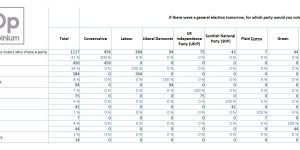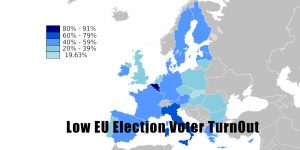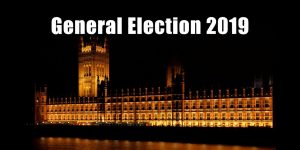The United Kingdom’s Exit from and new Partnership with the European Union White Paper
1. Providing certainty and clarity
We recognise how important it is to provide business, the public sector and the public with as much certainty as possible. So ahead of, and throughout the negotiations, we will provide certainty wherever we can. We will provide as much information as we can without undermining the national interest.
Providing legal certainty
1.1 To provide legal certainty over our exit from the EU, we will introduce the Great Repeal
Bill to remove the European Communities Act 1972 from the statute book and convert the ‘acquis’ – the body of existing EU law – into domestic law. This means that, wherever practical and appropriate, the same rules and laws will apply on the day after we leave the EU as they did before.
1.2 This approach will preserve the rights and obligations that already exist in the UK under EU law and provide a secure basis for future changes to our domestic law. This allows businesses to continue trading in the knowledge that the rules will not change significantly overnight and provides fairness to individuals whose rights and obligations will not be subject to sudden change. It will also be important for business in both the UK and the EU to have as much certainty as possible as early as possible.
1.3 Once we have left the EU, Parliament (and, where appropriate, the devolved legislatures) will then be able to decide which elements of that law to keep, amend or repeal.
1.4 We will bring forward a White Paper on the Great Repeal Bill that provides more detail about our approach.
1.5 Domestic legislation will also need to reflect the content of the agreement we intend to negotiate with the EU.
The Great Repeal Bill
The Great Repeal Bill was announced to Parliament on 10 October 2016. The Bill has three primary elements:
• First, it will repeal the European Communities Act 1972, and in so doing, return power to UK politicians and institutions.
• Second, the Bill will preserve EU law where it stands at the moment before we leave the EU. Parliament (and, where appropriate, the devolved legislatures) will then be able to decide which elements of that law to keep, amend or repeal once we have left the EU. The UK courts will then apply those decisions of Parliament and the devolved legislatures.
• Finally, the Bill will enable changes to be made by secondary legislation to the laws that would otherwise not function sensibly once we have left the EU, so that our legal system continues to function correctly outside the EU.
The Government’s general approach to preserving EU law is to ensure that all EU laws which are directly applicable in the UK (such as EU regulations) and all laws which have been made in the UK, in order to implement our obligations as a member of the EU, remain part of domestic law on the day we leave the EU.
In general the Government also believes that the preserved law should continue to be interpreted in the same way as it is at the moment. This approach is in order to ensure a coherent approach which provides continuity. It will be open to Parliament in the future to keep or change these laws.
Public and parliamentary involvement and scrutiny
1.6 We will continue to build a national consensus around our negotiating position by listening and talking to as many organisations, companies and institutions as possible. Government ministers have led widespread engagement with their sectors and ministers from the Department for Exiting the EU alone have held around 150 stakeholder engagement events, covering all sectors of the economy. The majority have been outside London and right across the UK, including Scotland, Wales, Northern Ireland and England. This has helped inform Government understanding of the key issues for business and other stakeholders ahead of the negotiations. This engagement will continue throughout the period before we leave.
1.7 The devolved administrations will continue to be engaged through the Joint Ministerial Committee (JMC), chaired in plenary by the Prime Minister and attended by the First Ministers of Scotland and Wales and the First and deputy First Ministers of Northern Ireland, and the JMC sub-committee on EU Negotiations (JMC(EN)), chaired by the Secretary of State for Exiting the European Union, with members from each of the UK devolved administrations.
1.8 Parliament also has a critical role. First, legislation will be needed to give effect to our withdrawal from the EU and the content of such legislation will of course be determined by Parliament. This includes the Great Repeal Bill, but any significant policy changes will be underpinned by other primary legislation – allowing Parliament the opportunity to debate and scrutinise the changes. For example, we expect to bring forward separate bills on immigration and customs. There will also be a programme of secondary legislation under the Great Repeal Bill to address deficiencies in the preserved law, which will be subject to parliamentary oversight.
1.9 Both Houses, the House of Commons Select Committee on Exiting the EU and other select committees will help to scrutinise and inform the decisions made. Since September, and in addition to debates that have been scheduled by opposition parties or the Backbench Business Committee, and debates in the House of Lords, the Government has provided for four debates in the House of Commons in Government time on the impact of EU exit on a variety of sectors, such as:
•• workers’ rights;
•• transport policy;
•• science and research; and
•• security, law enforcement and criminal justice.
That programme of debates will continue.
1.10 The Government has made five Oral Statements to Parliament on the subject of the UK’s withdrawal from the EU and answered over 500 Parliamentary Questions. Ministers from the Department for Exiting the EU have also appeared 12 times in front of select committees, and those committees have undertaken, or are currently undertaking, 36 inquiries on EU exit-related issues. Government ministers will continue to provide regular updates to Parliament and the Government will continue to ensure that there is ample opportunity for both Houses to debate the key issues arising from EU exit.
1.11 To enable the Government to achieve the best outcome in the negotiations, we will need to keep our positions closely held and will need at times to be careful about the commentary we make public. Our fundamental responsibility to the people of the UK is to ensure that we secure the very best deal possible from the negotiations. We will, however, ensure that the UK Parliament receives at least as much information as that received by members of the European Parliament.
1.12 The Government will then put the final deal that is agreed between the UK and the EU to a vote in both Houses of Parliament.
Funding commitments
1.13 We recognise the importance to business of having certainty about funding arrangements over the coming years. We have already acted quickly to give clarity about farm payments, competitive grants, including science and research funding, and structural and investment funds.
Funding commitments already made by this Government All European Structural and Investment Funds (ESIFs) projects signed, or with funding agreements that were in place before the Autumn Statement 2016, will be fully funded, even when these projects continue beyond the UK’s departure from the EU. This includes agri-environment schemes under the Common Agricultural Policy (CAP).
For projects signed after the Autumn Statement 2016 and which continue after we have left the EU, HM Treasury will honour funding for projects if they provide strong value for money and are in line with domestic strategic priorities.
For bids made directly to the Commission by UK organisations (including for Horizon 2020, the EU’s research and innovation programme and in funds for health and education), institutions, universities and businesses should continue to bid for funding. We will work with the Commission to ensure payment when funds are awarded. HM Treasury will underwrite the payment of such awards, even when specific projects continue beyond the UK’s departure from the EU.
HM Treasury has also provided a guarantee to the agricultural sector that it will receive the same level of funding that it would have received under Pillar 1 of CAP until the end of the Multiannual Financial Framework in 2020.
In the case of the devolved administrations, we are offering the same level of reassurance as we are offering to UK government departments in relation to programmes they administer, but for which they expected to rely on EU funding.
The Government will consult closely with stakeholders to review all EU funding schemes in the round, to ensure any ongoing funding commitments best serve the UK’s national interests.
Previous : Preface by the Secretary of State
Next : Taking Control of Our Own Laws
The United Kingdom’s Exit from and new Partnership with the European Union White Paper











